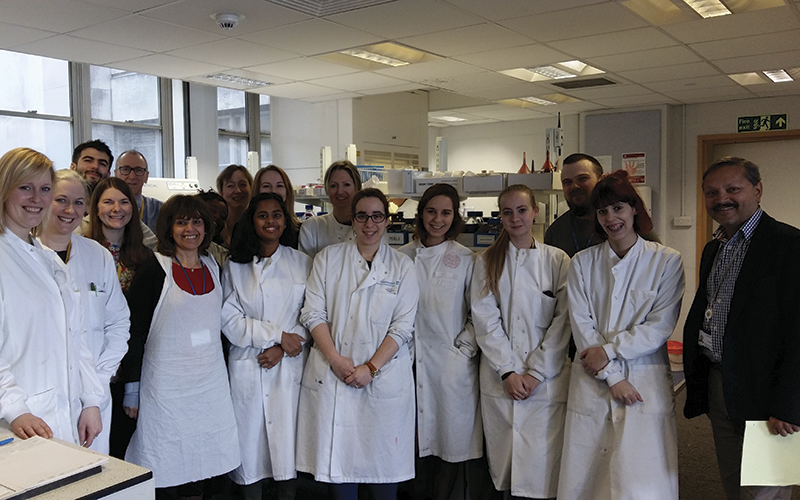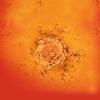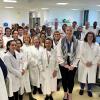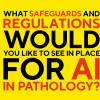Jo Horne, an Advanced Practitioner Healthcare Scientist, gives a guided tour of her histopathology lab, which is part of the University Hospital Southampton NHS Foundation Trust.

The histopathology laboratory based at Southampton General Hospital, where I work, is part of a large NHS hospitals teaching trust, providing a general and specialised service. Histopathology is part of the cellular pathology department, which also comprises paediatric and perinatal pathology, neuropathology, diagnostic cytopathology, mortuary and the biomedical imaging unit. We are such a big department that we are sited on four different levels of the hospital.
Almost 100 staff work in cellular pathology (with 86 in histopathology) from the UK, Europe and other countries. We are proud of our diverse workforce, which has only improved and enriched our department.
We have strong links with the University of Southampton, supporting medical student education and collaborating in research with a dedicated research section within the laboratory. The research team has recently been working on PDL1 immunohistochemical testing, which helps determine whether some cancer patients will benefit from new drug treatments.
The department processes over 40,000 patient requests each year, ranging from tiny biopsies to large surgical resections, ranging from a simple hysterectomy to a Whipple’s pancreaticoduodenectomy. We also provide an immunohistochemistry service and deliver a range of molecular pathology services in addition to the services delivered by the trust’s dedicated molecular pathology department.
As a teaching department, we support the training and education of our staff, which can be challenging in the current healthcare climate. We are a training site for medical histopathology trainees and the training and education of biomedical scientists into senior and extended roles is also encouraged. Southampton was a pilot site for the new Biomedical Scientist Reporting Programme, and has an experienced biomedical scientist within the department who is qualified to perform independent specimen dissection and reporting in gastrointestinal histopathology alongside consultant pathologists.
Southampton is one of the 13 UK genomics centres, working with Genomics England to sample fresh specimens for molecular testing as part of the 100,000 Genomes Project. This is a new and exciting development involving histopathology laboratories. We are extremely proud to be part of the project. The associated work is supported by staff working within both the diagnostic and research sections, to ensure timely and careful sampling of fresh tissues, but without compromise to the routine histopathological diagnostic process.
Working in a big, complex department means that we are always busy, often with a variable and interesting workload. As a result, it can be difficult to find time to stop and reflect in what can be a challenging and stressful environment. However, working hard as a team to support each other enables us to recognise and respect the varied contributions and skills that we each provide. As a proactive department, we seek efficiencies and innovations to improve workflow, communication and training. These are some of the founding principles of our department and make me incredibly proud to be a tiny cog in a huge, complex wheel. I wouldn’t want it any other way.




